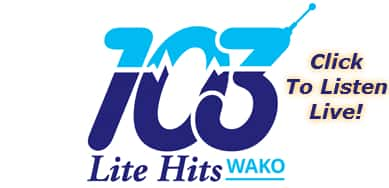
Another company leaving Indianapolis for Mexico, Mitch Daniels getting a $200,000 incentive paycheck from Purdue, and at a drug abuse conference it was determined the best way to stop drug abuse is stop it before it starts.
ANOTHER INDY POLICE STATION SHOT AT
(from the Associated Press)
Gunfire has struck an Indianapolis police department district office, and officials said Friday that investigators believe whoever is behind this attack also shot at another city police office this month. No one was reported injured in either shooting, the latest of which happened about 11 p.m. Thursday at the North District Headquarters. Police Chief Troy Riggs told reporters early Friday anyone involved is “extremely violent.”
REXNORD LEAVING INDY
(from Network Indiana)
Another Indianapolis company is moving its jobs to Monterrey, Mexico. Rexnord Bearings announced to its employees Friday that some jobs were going to be moved to the country beginning in 2017. Draper Alumbaugh has worked at the company for 13 years
The move comes just 8 months after Carrier workers found out their jobs were being phased out of an Indianapolis manufacturing plant and instead, also relocating to Carrier’s facility in Monterrey. The company says nearly 350 jobs will be moving to Mexico.
PURDUE-DANIELS BONUS
(from the Associated Press)
Purdue University has decided its president, former Indiana governor Mitch Daniels, has earned more than $200,000 in incentive pay. The school’s board of trustees on Friday voted to give Daniels 96 percent of a pool of $210,000 in incentive pay available, meaning he’ll get $201,600. Trustees lauded Daniels for increased graduation rates, large enrollment totals and record-setting fundraising. The money is for the fiscal year that ended June 30. Daniels is guaranteed $420,000 for his base salary. Daniels received 90 percent of the $126,000 of possible at-risk pay in the 2014-2015 academic year. Trustees extended his contract through 2020 a year ago. If he stays through the full term of his contract he’ll receive a $100,000 retention incentive. Daniels was graded on student affordability, student success, fundraising and Purdue’s reputation.
DRUG CONFERENCE HELD IN THE STATE’S CAPITAL
(from Network Indiana)
The best way to roll back drug abuse is to stop it before it starts. That’s the advice of an addiction-prevention researcher at Indiana’s annual conference on prescription abuse.
University of Washington Professor David Hawkins says there’s an overdue commitment to treatment for substance abuse, not just putting people in jail. Under the Obama Administration, he says funding for treatment has more than doubled. But he says the problem can’t be solved without a commitment to prevention, and says there hasn’t been a corresponding increase in funding for those efforts.
Hawkins says federal funding for prevention programs peaked at two-billion dollars, less than one-seventh of what goes to drug enforcement efforts. Worse, he says much of that money is wasted. He says there are dozens of programs which have been studied and proven to dramatically reduce addiction rates — but funding often goes to programs which sound good, but haven’t been tested. Some of those programs end up doing more harm than good, like the “scared straight” effort of the ’70s and ’80s.
Hawkins says other programs make the mistake of failing to consider local needs. He says you can’t use the same program against youth gangs peddling street drugs that you use for upper-class kids raiding their parents’ medicine cabinet.
Hawkins says the hallmarks of an effective prevention program are no mystery::give kids opportunities to use a skill, praise and reward them for doing it, encourage bonding, and set clear standards for what’s expected and consequences for not meeting them. He says well-designed life-skills training courses in middle school have been shown to reduce addiction by two-thirds.
Ironically, Hawkins says, street gangs often implement those principles better than anti-drug programs do, with initiation rituals which reward criminal behavior and produce a bond with gang leaders.


